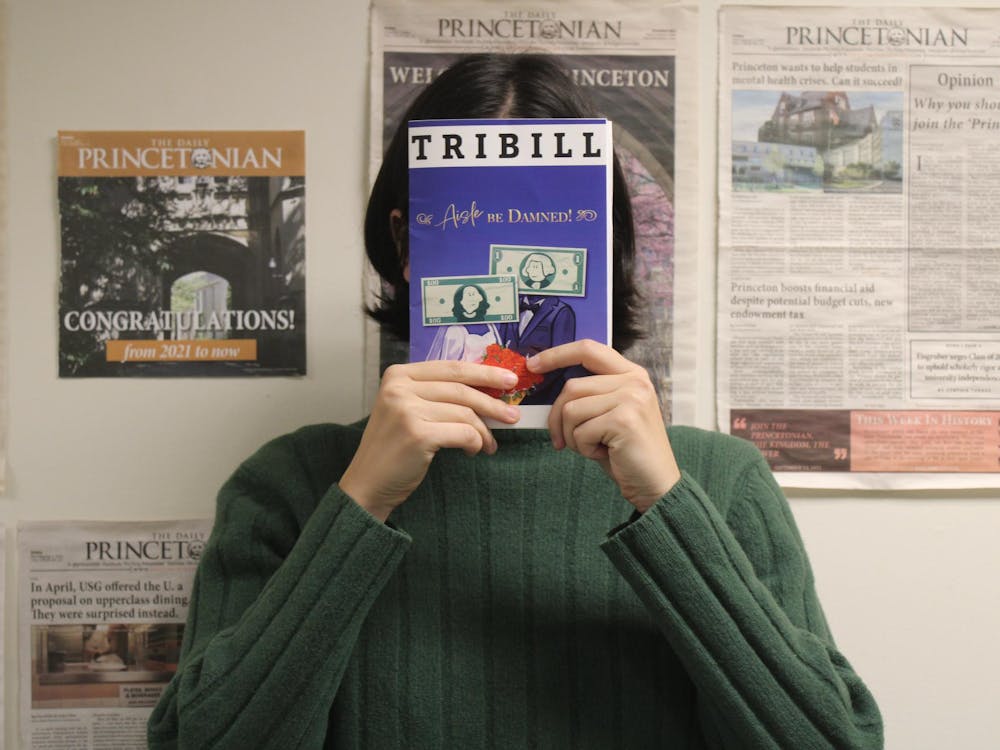It is difficult to imagine a place for yet another music ensemble among the many performing groups that already exist on campus. However, after hearing a preview of Opus 21’s upcoming concert, I’ve realized that there is not only a place for this ensemble in the Princeton arts community, but also a true need.
Opus 21 is a classical chamber music group started by Edward Leung ’16 and Ashley Kim ’16, who are both pursuing certificates in instrumental performance. Leung and Kim are highly decorated musicians with ample experience in the pre-professional music world. Last spring, they combined forces to create a new ensemble intending to fill a void in their Princeton music careers. Leung explained that while there are many fantastic student performing groups at Princeton, before Opus 21, there was no existing ensemble that featured only the very best classical musicians on campus.
Leung and Kim went through a rigorous recruitment and audition process to fill the Opus 21 roster. With the dual mission of revamping Princeton’s music department and providing Princeton musicians with conservatory-level performing opportunities, Opus 21 has an ambitious to-do list. Having heard three works, which will be featured on the program of Opus 21’s upcoming performance this Saturday, April 4, I am convinced that the ensemble is working hard to accomplish its goals.
On Sunday night, three talented cellists and one of Opus 21’s co-founders, pianist Leung, presented a cohesive performance of Popper’s “Requiem” for three cellos. The cellists melded their individual sounds, successfully matching their tones, vibrato styles and bow strokes on a minute level. Their passing of melodic lines back and forth was effortless, making it difficult to notice that a switch in players had even occurred. The fact that this piece took only two rehearsals to put together is hard to believe, and reflects well on the group’s professionalism and efficiency.
As I was about to float away in a cloud during the final dream-like moments of the Popper, I was a bit dismayed that not enough care was taken in conveying Popper’s final cadence, which came across as more of an afterthought. The performers seemed to have given up slightly at this point. Overall, however, Popper's "Requiem" was a fantastic sample of the group’s talent, and I am confident that the energy of a live performance will alleviate the issues with the ending.
Schoenberg’s “Verklärte Nacht” for string sextet is always an absolute showstopper. Kim led the group on first violin with poise and musicality. The entire group rose to her level, creating a dramatic, exciting performance that will most definitely transport you from hectic Princeton life to Schoenberg’s exquisite musical world. Each individual player in this sextet was highly polished, with especially virtuosic performances by Kim, Emma Powell ’17, Jay Kim ’18 and Nathan Wong ’18.
Finally, a piano quartet played two movements of “Summer Night Music,” composed by graduate studentChris Rogerson.I enjoyed the beginning of the movement “Summer Nights,” which consisted of a bed of strings creating a texture that each musician could soar above with a solo, one by one, passing along the melody. Rogerson's unison at the end of the movement was extremely powerful with the strings sustaining each note, using every possible centimeter of bow. While the group successfully conveyed the programmatic concepts of this gorgeous composition, the performance was a bit tired. The players were dispassionate, producing sloppy entrances and phrase endings that were not often together.
With a week of rehearsal left after the generally superb run-through that I heard on Sunday, Opus 21 is sure to come out with a bang in their first full-length concert this Saturday, April 4 at 7:30 p.m. in Taplin Auditorium in Fine Hall.







